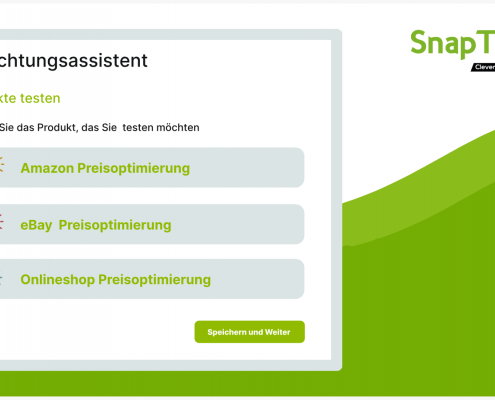New laws in 2022 in e-commerce: what online retailers should pay attention to now
The year 2022 is only a few days old, but for most online retailers, everyday business is back in full swing. Entrepreneurs know that the legal framework changes in one place or another every year. 2022 is no exception. On the contrary: with the termination button, for example, the legislator is introducing a regulation that affects many sectors and requires appropriate preparations.
We will present these and other new laws for the e-commerce year 2022 below.

“Law for fair consumer contracts” brings many innovations in 2022
Above all, consumer protection is the focus of the legislative changes in 2022 in e-commerce. As early as September last year, the Bundestag passed the so-called “Law for Fair Consumer Contracts”, which primarily addresses the issue of notice periods and options for contracts with an indefinite term. These do not end after the expiry of a previously defined contract period; instead, termination of the contractual relationship requires a termination.
This type of contract model is typical, for example, for memberships in fitness studios, mobile phone contracts or energy suppliers. Subscriptions, which are becoming more and more common in e-commerce, often have an indefinite contract period. Once concluded, consumers often find it difficult to terminate the corresponding contracts.
Try it now for free: Optimize your margin with SnapTrade’s dynamic price adjustment
Adjusting your product prices manually is time-consuming, ties up resources unnecessarily and only lets you lag behind market developments. SnapTrade enables you to dynamically adjust prices for your entire product portfolio on Amazon and eBay, which you can use to increase your sales and sell with optimized margins.
Shorter notice periods from March 1st
For contracts concluded after March 1st, 2022 , other notice periods apply in favor of the consumer. This could be especially relevant for the e-commerce companies that sell subscriptions to their products and/or services to their customers.
A contract must be terminable on a monthly basis after its minimum term has expired. New conditions also apply to automatic, tacit contract extensions from this point in time. They are only permissible if they are renewed indefinitely and can be canceled on a monthly basis.
Previously, if customers wanted to prevent the automatic renewal of a contract, they had to do this up to three months in advance. This period has now been reduced to one month. Nothing will change in the maximum possible minimum contract term, which is still two years.
Reading tip: What one-stop shop (OSS) means for online retailers .
E-Commerce Laws 2022: The cancellation button is coming
As of July 1, 2022 , the so-called “cancellation button” will become mandatory. This applies to all contracts that can be concluded online via a website, an app or similar. A contract concluded in this way must be able to be terminated via a prominently placed cancellation button.
Affected companies should definitely comply with this new law in 2022. If they fail to do so, contract holders have the right to terminate the contract at any time and without observing the applicable deadlines.
The home office flat rate will be extended
With the exception of a few areas, such as logistics, e-commerce companies are often fully digitized and able to work from home. Since many employees are still working from home, the so-called home office flat rate was extended to 2022. Originally, the tax break was only intended for 2020 and 2021.
With the help of the regulations, employees can deduct up to five euros per day as income-related expenses. This is possible up to an upper limit of 600 euros.
New employer obligations for mini jobs
Companies that employ mini-jobbers or intend to do so will also have to adapt to new regulations in 2022. In addition to tax numbers, tax identification numbers for part-time employees must also be recorded and passed on to the mini-job center.
Employers must also provide information on the health insurance coverage of short-term employees in the social security system. The coalition agreement of the new federal government also provides for an increase in the mini-job limit from 450 to 520 euros.
Reading tip: We present the 7 most important Amazon guidelines in this article.
More minimum wage from 2022
The minimum wage will rise in 2022. The planned increase will take place in two stages: a minimum wage of EUR 9.85 per hour has been in effect since January 1st, and this is to be increased again to EUR 10.45 on July 1st . The coalition agreement provides for raising the lower wage limit to 12 euros. In particular, the SPD and reasons are driving this idea forward.
Since the minimum wage also applies to mini-jobbers, their maximum working hours are reduced. Based on the new upper earnings limit, mini-jobbers are only allowed to work 52 hours a month, at 10.45 euros it would be 49 hours. If the minimum wage were 12 euros, only 43 working hours per month would be possible even with the new upper earnings limit.
Conclusion
There are a whole host of new laws for 2022, most of them related to consumer protection or employee conditions. Adjustments to the minimum wage can also change a lot for e-commerce companies, especially if they employ mini-jobbers. The obligation to have to include a cancellation button to terminate online contractual relationships often requires a certain amount of development effort on the part of the company. We hope this post gave you a good overview of some of the legislative changes for 2022.










